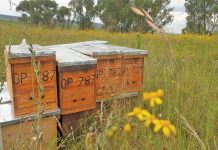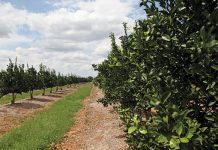Many farmers dream of having a world-class farming enterprise. With themselves proud, happy and successful; their leaders strong, sober and good team players; and their workers with a good team spirit and motivated. In reality, however, the leaders often suffer from low self-esteem resulting in an inability to treat others with respect. If you don’t respect yourself, how can you respect others?
The pressure often leads to alcohol-related problems. The results, a farmworker community caught in a spiral of envy, spite and alcohol abuse. The farmer becomes tired of struggling with worker-related problems and is bogged down by administration and paperwork. The farmer accordingly dreams of mechanisation and is plagued by feelings of guilt.
Choosing the right candidate
Changing this situation needs to start with the farmer. Farmers must make the decision that things are going to change. Many farms still have a rather negative worker-farmer culture passed down from one generation to the next. F armers must decide that they are going to do things differently from their fathers. Such change comes slowly, as workers and farmers learn to understand and respect each other. The farmer needs to plan and budget for staff training and empowerment programmes.
Nothing is for free and sending staff on courses can become pretty expensive. It’s worthwhile to look into subsidies that have been made available for training. Farmers also need to carefully identify suitable candidates. It’s no use choosing John because he likes talking, has a driver’s licence and a new suit, which means he would be presentable at the course. S elect someone with potential, worth investing in. If there isn’t someone like that on your farm, then you will have to lengthen your staff-empowerment programme by maybe 10 years to develop what you have; or you’ll need to import workers if you don’t have that much time. This is especially important when it comes to leaders. Farmers cannot carry all the responsibility – they need reliable people to help them.
Communication is key
In addition to this, farmers need to improve their own skills. This is especially important when it comes to communication skills. Farmers need to initiate a culture of two-way communication, so workers can communicate their ideas and needs. This would not only make an employee feel more appreciated, but could also help generate interesting new ways to improve production or reduce costs.
Many farmworkers attend courses without knowing why they are attending them. If you ask them why, they respond that their boss had sent them. When probed further, they might add that they don’t know why their boss had sent them. Communication after the course also seems to be dismal and limited to simplicities such as, “did you enjoy the course?” and “was the food nice?” It’s therefore important that farmers communicate clearly why they’re sending workers on courses – as well as what they expect them to learn there.
Then after the course, farmers should make an effort to follow up on what workers learned. Set goals for workers, such as giving them the task of collecting pruning shears from all the other workers at the end of the day. Responsibilities can then be expanded as the workers prove themselves. Providing feedback to workers – especially to the leaders and overseers – is important. These staff need to understand and know why things are done in a specific way. And they need to understand how failure or success affects the farm. It’s important to have team sessions so the leaders and overseers can share information, challenges and ideas. The leaders need to work together towards a common goal.
Participatory, not authoritative
Many people think the participatory management approach only creates problems. But, when implemented properly, it can be far more effective than an authorative style. Standards are often raised, whereas very little cultural change usually takes place if farmers only shout and belittle their workers. Many farmers are short-sighted when it comes to training. They must realise that just as a tree won’t grow well if it doesn’t receive sufficient water or nutrition, so a worker won’t thrive without sufficient input and attention. – Glenneis Erasmus Contact Archie van Biljon on (023) 317 0983 or e-mail [email protected]. |fw









